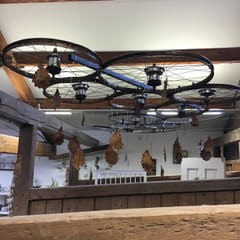One of the hapless outcomes of trying to define ‘cultural literacy’ in terms of social futures has been the need to understand the relationship between art, making, doing and their impact on society in a time of crisis. Practising art in the current climate barely puts food on the table, let alone changes society, unless artists and agents have access to patronage and space. Meantime, the entrepreneurial self-employed go bust, rental is a vicious circle, disadvantaged kids suffer from malnutrition and Netflix streams a slurry of fourth-rate screenplays and wooden performances sustained by corporate capital (witness the recent, mind-numbing remake of Daphne du Maurier’s Rebecca).

One critical option is to broaden the definition of authentic artistic practice. After all, ‘Art’ is creative doing, open to all, fuelled by ‘agency’, to the extent that people have the capacity to exercise it in their everyday lives. Notwithstanding Jacques Rancière’s idealistic attempt to inject sensibility into Fordist production processes, the aestheticism was his and surely not that of the young woman operatives he quotes from Vertov’s celebrated film The Man with the Camera (1929). For the actor/artist, art is not gratuitously mechanical. It demands a minimal degree of freedom and consciousness. It lies somewhere at the interface between personal impulse, context, the act itself and its social outcome. Under lockdown, art, action and artefact have become co-terminal. Critical reflection on creativity necessarily incorporates the politics of process.
Creativity in and of itself is not enough. In its essence, art may remain an inherent attribute of the subjective imagination. Yet it derives from a material base and leads to tangible outcomes, however provisional. If symbolism is social, ‘cultural literacy’ is ethnographic. Art does more than inform lived reality. It entails it as the translation of voluntary articulation with material systems, whether as the mass product of corporate interest, individual inspiration or the reflection of the day to day. To be aware of this principle and to enact it in everyday life as creator, employee or commentator is to be ‘culturally literate’.
Which is where the overworked concept of ‘bricolage’ re-emerges as a potentially intriguing catalyst. It is not just the fact that DIY and gardening have emerged post-Covid as two of the very few growth sectors in domestic consumption, limited like so much else to those who can afford plants, materials and a space to call ‘home’. Neither is this the place to engage in theoretical debate about the psychological development of the individual, except to say that now more than ever, with mental health dominating the media, the need for selfhood to re-engage with the real world through collective action has rarely been so great. Inextricably entwined as they are, well-being derives from plural perceptual processes reinforced by the symbolic translation of economic reality as much as from the sub-conscious impulses of individuals. Respect for diversity demands evidence of shared imagination grounded in experience.
The contemporary relevance of ‘bricolage’ as a cultural trope is admirably expressed in an inspiring paper by Christopher Johnson ‘Bricoleur and Bricolage: From Metaphor to Universal Concept’ published by Edinburgh University Press in the Journal Paragraph (2012) Vol.35/3. This finely written article, available on line, returns the reader to Claude Levi-Strauss’s original formulation of the term in La Pensée sauvage (1962) and convincingly demonstrates how and why it can inform current understanding of the dynamic relationship between art, creativity, society and technology. It raises wider questions concerning the interaction between individual sense-responses, shared emotions, everyday behaviour, identities, politics and the natural environment which go to the heart of what it means to be culturally challenged in a hyperreal world. These are issues which I hope to be able to pursue in subsequent blogs in dialogue with anyone who happens to have read this one.
Robert Crawshaw
November 26th 2020



